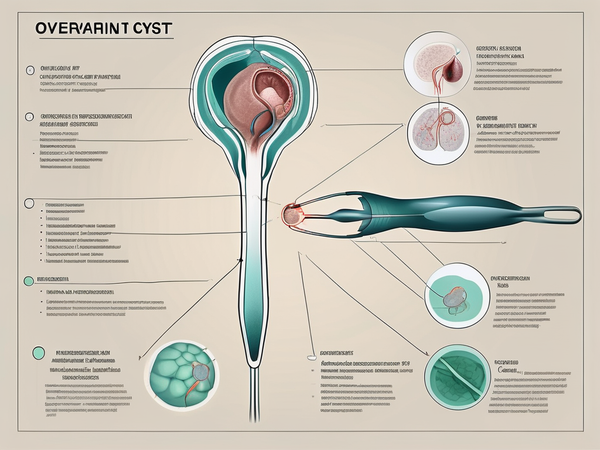Magnesium is just as important for pregnancy as it is for general health. From muscle relaxation to managing labor pains, magnesium plays a very delicate role in pregnancy.
Introduction to the Role of Magnesium in Labour
As expectant mothers, we understand the importance of a smooth and comfortable labor experience. One natural option that has gained significant attention is the use of magnesium salts. Magnesium, an essential mineral, plays a vital role in various bodily functions, including muscle relaxation. In this article, we will explore the benefits of magnesium salts during pregnancy and their potential role in facilitating a smooth labor experience.
Understanding the Benefits of Magnesium Salts During Pregnancy
During pregnancy, our bodies undergo numerous changes, and our muscles may experience tension and discomfort. Magnesium salts, such as magnesium sulfate or magnesium hydroxide, can help alleviate these symptoms by promoting muscle relaxation. By increasing the level of magnesium in our body, these salts contribute to a calmer and more comfortable state, preparing us for the challenges of childbirth.
Furthermore, adequate levels of magnesium have been linked to a reduced risk of complications during pregnancy, such as preeclampsia and preterm birth. Studies have shown that low magnesium levels may contribute to these conditions, making it essential to ensure sufficient magnesium intake. Incorporating magnesium salts into our prenatal routine may be an effective way to support a healthier pregnancy.
Magnesium Salts & Pain Management
Labor pain can be intense and overwhelming. While there are various pain management options available, many women seek natural alternatives. Magnesium salts offer a promising solution by reducing muscle tension and promoting relaxation. By easing muscle contractions, magnesium salts can help manage the pain associated with labor, providing us with a more comfortable birthing experience.
Additionally, magnesium salts have been found to have a calming effect on the nervous system, potentially reducing anxiety and stress during labor. This not only aids in pain management but also contributes to a more positive birthing environment. With their natural properties, magnesium salts offer an alternative to pharmacological pain relief methods, which may have potential side effects.
The Science Behind Magnesium Salts & Their Effect on Muscle Relaxation
Magnesium salts work by enhancing the body's ability to relax muscles. Magnesium plays a crucial role in regulating calcium levels in and out of the muscle cells, which in turn affects muscle contractions. When magnesium levels are low, calcium can accumulate in muscle cells, leading to increased muscle tension and discomfort. By supplementing our body with magnesium salts, we can restore the balance between magnesium and calcium, promoting muscle relaxation and reducing pain.
Moreover, magnesium salts have been found to inhibit the release of acetylcholine, a neurotransmitter responsible for muscle contractions. By interfering with this process, magnesium salts further contribute to muscle relaxation, providing us with relief during labor. It is important to consult with our healthcare provider to determine the appropriate dosage of magnesium salts for our specific needs.
Magnesium plays a crucial role in muscle contractions, especially during the childbirth process. During labor, magnesium levels in the body drop, which potentially contributes to the onset and progression of contractions. Magnesium blocks the influx of calcium ions, due to which frequent or intense contractions do not occur. It helps relax the uterine muscles and reduces the risk of preterm labor.
Different Forms of Magnesium Salts & Their Administration Methods
Magnesium salts are available in various forms, each with its benefits and methods of administration. The most common forms include magnesium sulfate, magnesium hydroxide, and magnesium citrate. Magnesium sulfate, often administered intravenously, is commonly used in hospital settings for its fast-acting properties. Magnesium hydroxide, on the other hand, is available in oral forms such as tablets or capsules and can be taken as a supplement during pregnancy and labor.
Another popular option is magnesium citrate, which is often used as a laxative. While it may not directly contribute to muscle relaxation during labor, it can help ensure regular bowel movements, which is important during this time. Consultation with our healthcare provider is crucial in determining the most suitable form and administration method of magnesium salts for our individual needs.
Recommended Dosage & Safety Guidelines for Using Magnesium Salts During Labour
When considering the use of magnesium salts during labor, it is essential to follow recommended dosage guidelines and prioritize our safety. The appropriate dosage may vary depending on individual circumstances, and it is crucial to consult with our healthcare provider before starting any magnesium supplementation. They will consider factors such as our medical history, current health condition, and other medications we may be taking.
It is important to note that excessive intake of magnesium salts can lead to adverse effects, including diarrhea, nausea, and muscle weakness. Therefore, it is crucial to adhere to the recommended dosage and monitor our body's response closely. Our healthcare provider will guide us in monitoring our magnesium levels and adjusting the dosage accordingly for optimal results and safety.
Potential Side Effects & Precautions of Using Magnesium Salts During Labour
Although magnesium salts offer potential benefits during labor, it is important to be aware of potential side effects and take necessary precautions. As mentioned earlier, excessive intake of magnesium salts can lead to adverse effects such as diarrhea, nausea, and muscle weakness. It is crucial to monitor our body's response and adjust the dosage accordingly to avoid these complications.
Furthermore, individuals with certain medical conditions, such as kidney problems or heart disease, may need to exercise caution when using magnesium salts. Pregnant women with gestational diabetes should also consult with their healthcare provider before incorporating magnesium salts into their routine. It is always best to seek professional advice to ensure our safety and well-being during pregnancy and labor.
Other Uses of Magnesium Salts in the Postpartum Period
Beyond their potential role in facilitating a smooth labor experience, magnesium salts offer additional benefits in the postpartum period. They can aid in postpartum recovery by promoting muscle relaxation and reducing muscle soreness. Magnesium salts have also been associated with improved sleep quality, which is particularly valuable during the demanding early days of motherhood.
Moreover, magnesium salts can support breastfeeding by ensuring proper milk production and flow. They help maintain healthy calcium levels in our body, which is essential for lactation. By incorporating magnesium salts into our postpartum routine, we can promote our overall well-being and facilitate a smoother transition into motherhood.
Other Remedies for Labour Pains
Some natural remedies may help relieve labor pains, including breathing techniques, massage, warm compresses, hydrotherapy, and aromatherapy. These methods are often considered safe and may provide additional benefits such as relaxation and stress reduction.
Conclusion
Magnesium salts offer expectant mothers a natural option for smooth labor experiences. They promote muscle relaxation, and pain relief, and help reduce complications during pregnancy and labor. However, pregnancy is a highly sensitive phase and doctor’s recommendations at every stage are necessary. By incorporating magnesium salts into birthing plans, mothers can explore a natural alternative for a positive labor journey.




























